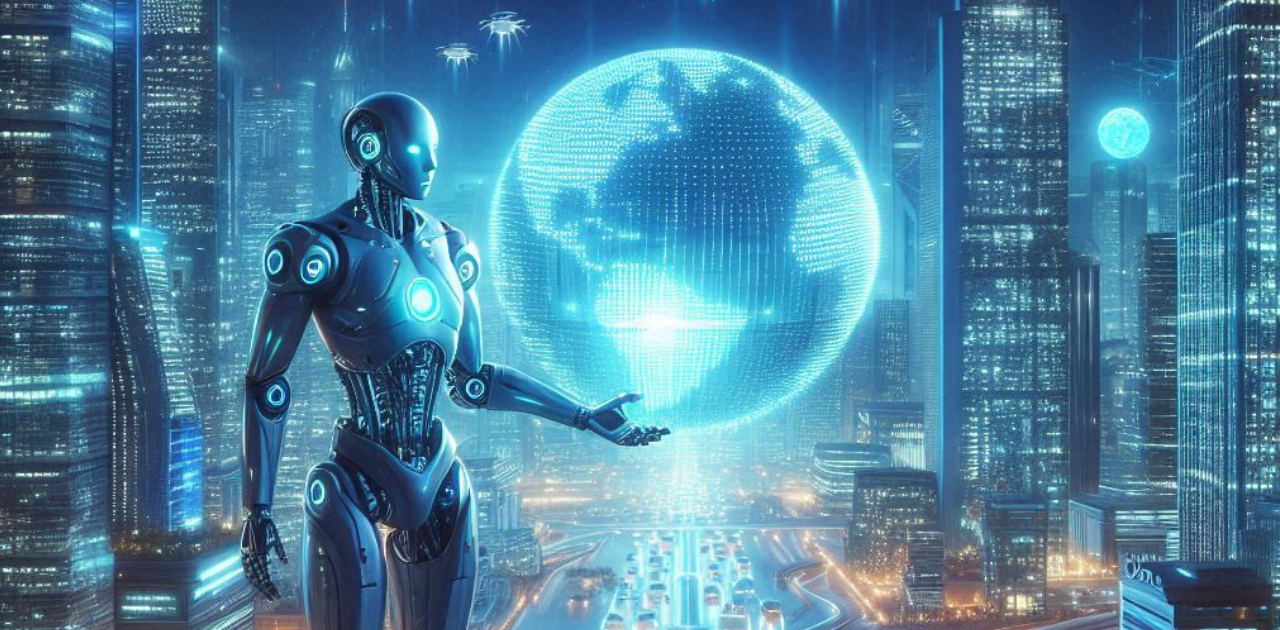Contents
Artificial Intelligence: Shaping the Future
Introduction
Artificial intelligence (AI) is the simulation of human intelligence in machines programmed to think and act like humans. This includes the development of intelligent agents, which are systems that can reason, learn, and operate autonomously. AI has rapidly transformed from a concept to a reality, transforming industries and our daily lives.
Body
Key Branches of AI:
- Machine Learning: Algorithms that enable computers to learn from data without explicit programming.
- Deep Learning: A subset of machine learning that is inspired by the structure of the human brain.
- Natural Language Processing (NLP): The ability of computers to understand, interpret, and generate human language.
- Computer Vision: Enabling computers to interpret and understand visual information from the world.
- Robotics: Designing and building robots that can perform tasks autonomously.

Applications of AI:
- Health care: Diagnostics, drug discovery, personalized medicine, and patient care.
- Finance: Fraud detection, algorithmic trading, and risk assessment.
- Customer Service: Chatbots, virtual assistants, and personalized recommendations.
- Automated Vehicles: Self-driving cars and drones.
- Manufacturing: Predictive maintenance, quality control, and supply chain optimization.
Table: Types of AI
| Type of AI | Description | Examples |
|---|---|---|
| Narrow AI | Focus on specific tasks Image Recognition, Speech Recognition | |
| General AI | Hypothetical AI with human-level intelligence | Not yet received |
| Super Intelligence | Hypothetical AI surpasses human intelligence | Theoretical concept |
Result

Artificial intelligence is rapidly changing the world, with far-reaching implications for society, economy and culture. While this presents both opportunities and challenges, responsible development and ethical considerations are critical to realizing AI’s full potential.
Frequently Asked Questions
- What is the difference between artificial intelligence and machine learning?
*Machine learning is a subset of AI that focuses on enabling computers to learn from data without explicit programming. - How can AI benefit society?
- AI can improve healthcare, education, transportation, and environmental sustainability.
- What are the ethical concerns about AI?
- Concerns include job displacement, privacy, bias, and autonomous weapons.
- How can I learn about AI?
- Online courses, tutorials, and AI-focused communities are good starting points.
- What is the future of AI?
- The future of AI is likely to include increased integration into everyday life, with advances in areas such as natural language processing and robotics.
Artificial intelligence

is a rapidly developing field that has the potential to revolutionize various aspects of human life. By understanding its capabilities and limitations, we can harness its power for the betterment of society.
Would you like to focus on a specific aspect of artificial intelligence, such as AI in healthcare, AI ethics, or the impact of AI on the job market?
